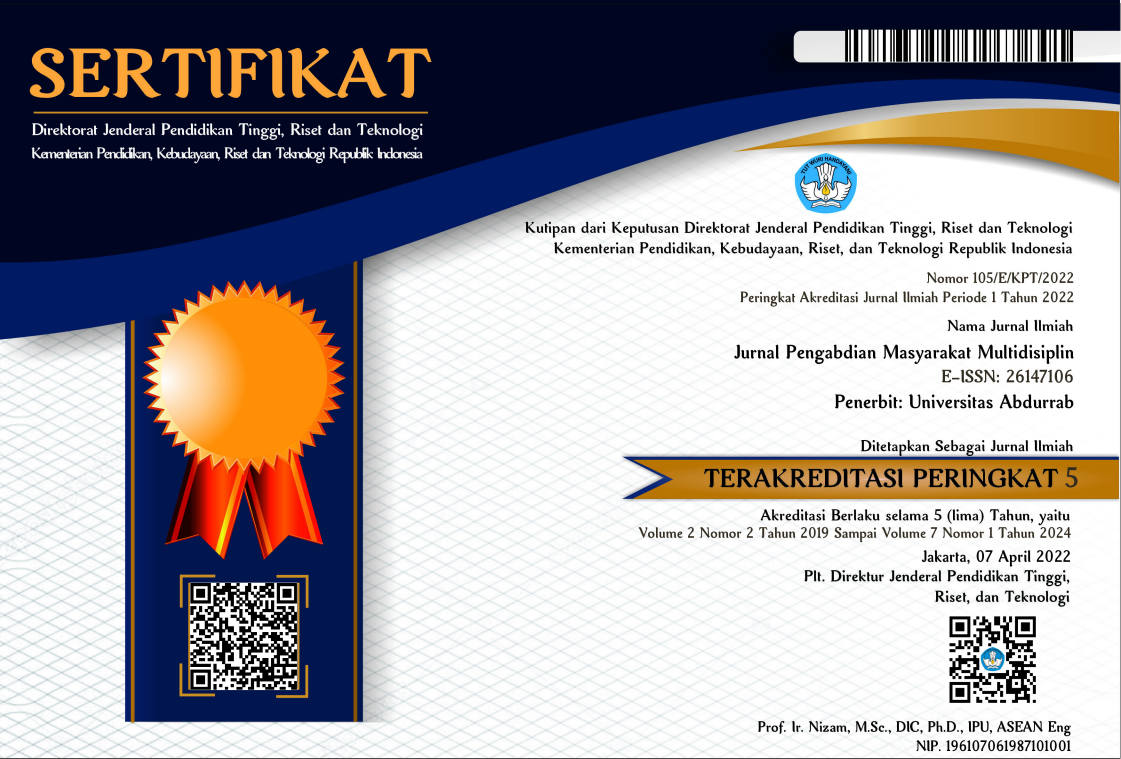PELATIHAN PEMBUATAN GAME EDUKASI KAHOOT BAGI GURU DI SMA NEGERI 1 PAJANGAN, BANTUL
DOI:
https://doi.org/10.36341/jpm.v7i3.4637Keywords:
Training activities, educational games, KahootAbstract
The purpose of this community service project is to provide guidance to the teachers of SMAN 1 Pajangan in creating educational Kahoot games. Subject matter experts at the school participated in the program, which took place in August. Various types of educational games, their advantages and disadvantages, as well as recent research on the benefits of using educational games for learning, were covered in the introduction to this activity. Additionally, the main objective of this community service is to offer fresh insights to the teachers of SMAN 1 Pajangan on the advantages of Kahoot educational games, the features of the website, and how to create them. The method used in this community service involved three stages: the pre-activity stage, the activity implementation stage, and the post-activity stage. The outcome of this training is to make teachers more creative in developing teaching modules that will be delivered to students, thereby enhancing student learning outcomes, accelerating material comprehension, making learning more engaging and less monotonous, and increasing learning interest. The conclusion of this community service is that it equips teachers to utilize Kahoot as a learning medium. It is recommended for educators to develop their teaching processes by incorporating Kahoot as a medium.
Downloads
Downloads
Published
How to Cite
Issue
Section
License
1. Copyright of all journal manuscripts is held by the Jurnal Pengabdian Masyarakat Multidisiplin.Formal legal provisions to access digital articles of electronic journal are subject to the provision of the Creative
2. Commons Attribution-ShareAlike license (CC BY-NC-SA), which means that Jurnal Pengabdian Masyarakat Multidisiplin is rightful to keep, transfer media/format, manage in the form of databases, maintain, and
3. publish articles.Published manuscripts both printed and electronic are open access for educational, research, and library purposes. Additionally, the editorial board is not responsible for any violations of copyright law.
licensed under a Creative Commons Attribution-ShareAlike 4.0 International License.







